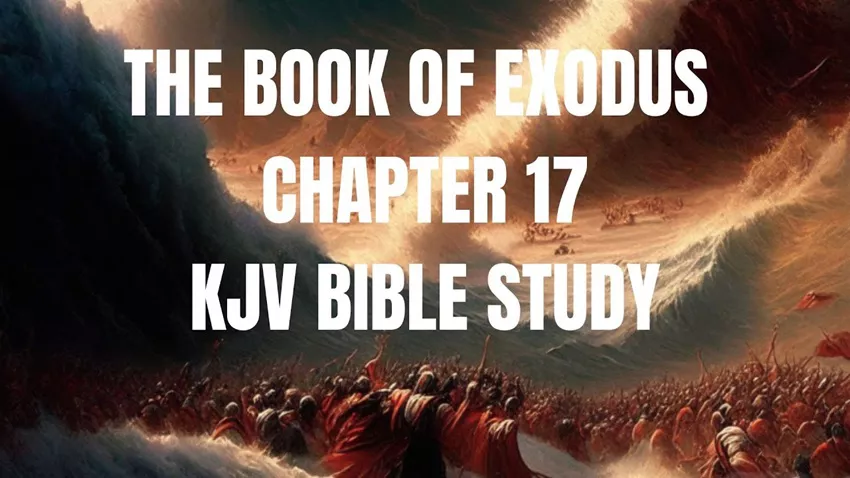Exodus Chapter 17 Summary
Exodus Chapter 17 narrates two significant events during the Israelites’ journey through the wilderness. First, the people complain about the lack of water at Rephidim, and God commands Moses to strike a rock, from which water miraculously flows to quench their thirst. This event is later commemorated as a demonstration of God’s provision. The chapter also recounts the Israelites’ battle against the Amalekites. Moses, with the help of Aaron and Hur, holds up his hands to ensure Israel’s victory. When his hands grow tired, they support him, leading to a decisive triumph. This chapter highlights God’s provision and the importance of perseverance in faith.
Bible Exodus Chapter 17
Welcome to read Exodus Chapter 17. Here is the list of Exodus Chapter 17:
What Does Exodus Chapter 17 Teach Us?
Exodus Chapter 17 captures pivotal moments in the Israelites’ journey through the wilderness. As they continue their trek towards the Promised Land, they face both physical and spiritual challenges. In this chapter, God teaches them valuable lessons about His provision, leadership, and the importance of trust. Below are the key teachings from Exodus 17:
1. God Provides in Times of Need
Exodus 17:1-7 recounts the Israelites’ complaint about the lack of water in the desert. In response to their grumbling, God commands Moses to strike a rock, and water miraculously flows from it. This demonstrates God’s provision, even in seemingly impossible circumstances. It teaches us that God is aware of our needs and faithful to provide for us, even when the way forward seems barren. We are called to trust God for our physical and spiritual needs, knowing He will supply them in His perfect timing.
2. The Importance of Trusting God in Difficult Times
The Israelites’ reaction to their situation—grumbling and doubting God—reflects a lack of trust. They questioned whether God was truly among them (Exodus 17:7). This teaches us that when we face hardships, we must resist the temptation to doubt God’s presence and goodness. Instead, we should remember His past faithfulness and trust that He will see us through current struggles.
3. Leadership and God’s Provision Through Leaders
In Exodus 17:8-13, the Israelites face an attack from the Amalekites. Moses, with the help of Aaron and Hur, holds up his hands in prayer to God, and the Israelites prevail in battle. This highlights the role of godly leadership. Moses’ leadership, combined with the support of his companions, demonstrates that God uses His chosen leaders to guide His people, especially during difficult times. It teaches us the value of godly leadership, unity, and prayer in overcoming challenges.
4. The Power of Prayer and Intercession
Moses’ raised hands during the battle symbolize the power of prayer and intercession. As long as his hands were lifted, the Israelites prevailed, but when they dropped, they began to lose. This teaches us the importance of consistent prayer, especially in the face of conflict. It reminds us that our victory in life’s battles is often dependent on our reliance on God through prayer.
5. God Calls Us to Remember His Faithfulness
After the battle with the Amalekites, Moses builds an altar and names it “The Lord is My Banner” (Exodus 17:15). This act of remembrance is crucial for sustaining faith. It teaches us the importance of memorializing God’s faithfulness in our lives. In times of trial, looking back at how God has helped us in the past strengthens our faith and trust in His ongoing provision.
6. Spiritual Battle and the Need for Support
The battle with the Amalekites also symbolizes the spiritual warfare that Christians face. The Israelites’ physical struggle represents the spiritual battles believers face daily. Just as Moses needed Aaron and Hur to support him, we too need the support of fellow believers in our spiritual battles. It teaches us the importance of community and shared prayer in overcoming the challenges we face.
Related topics:


